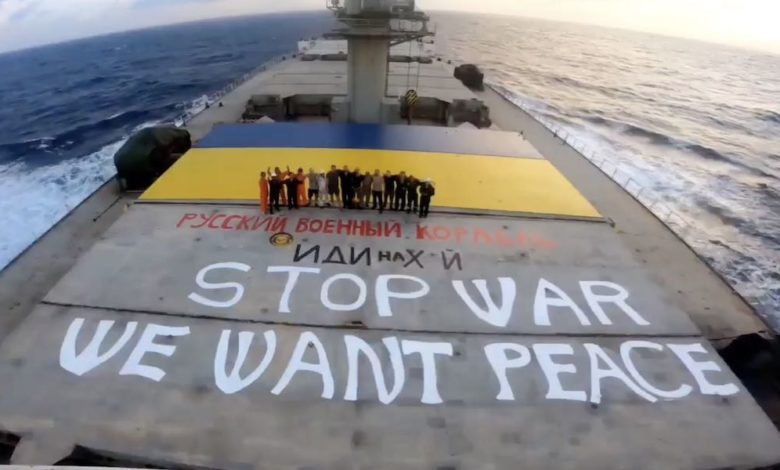Urgent call to create safe corridors in the Black Sea

At an ongoing two-day emergency meeting at the International Maritime Organization (IMO), the world’s leading shipping associations have called for safe corridors to be created for the many ships still trapped in Ukrainian waters while operators continue to abandon their vessels and evacuate stranded seafarers out of the war zone.
Guy Platten, secretary-general of the International Chamber of Shipping (ICS), commented: “Multiple ships have been hit by munitions, seafarers have been killed and injured and seafarers of all nationalities are trapped on ships berthed in ports. It is of the utmost urgency that their evacuation from these areas of threat should be ensured by those states with the power to do so.”
“I would like to emphasise again that shipping, particularly seafarers, cannot be collateral victims in a larger political and military crisis,” IMO secretary-general Kitack Lim stressed in his opening remarks to the emergency meeting yesterday.
Many service companies are pulling out of Russia. Crucially for the local maritime community class societies are starting to stop doing business with the world’s largest country. Both Lloyd’s Register (LR) and DNV yesterday withdrew services to Russia in varying extents. LR has confirmed that it will disengage from the provision of all services to Russian owned, controlled or managed assets or companies while DNV said it will not enter into new business with Russian companies nor into new business activities in Russia, adding in a statement: “We are reviewing all ongoing contracts and operations with Russian entities.”
Meanwhile, politicians and global commodity providers continue to seek alternative supplies of all manner of goods in the wake of the invasion.
“The conflict in Ukraine is starting to look like it may drag on for an extended period of time. Ukrainian commodity export volumes over the coming months are seriously in doubt whether the conflict immediately ends or not, and Western appetite for Russian commodities is grinding to a halt,” a research report from broker Arrow stated yesterday.
At the CERAWeek energy conference in Houston this week, US energy secretary Jennifer Granholm urged the oil industry to produce more fuel to compensate for the shortfall in the market caused by sanctions on Russian oil and gas.
“We are on war footing,” said Granholm at the conference. “That means releases from the strategic reserves all around the world. And that means you producing more right now if and when you can. In this moment of crisis, we need more supply.”
Prices for most commodities have soared in the 16 days since Russia invaded Ukraine.
Coal prices hit $462 per tonne yesterday, up from $186 on February 23 with Rystad Energy forecasting they will pass $500 this year.
Finally in today’s shipping news roundup in relation to the invasion, tracking from MarineTraffic shows that the Russians have reopened the Sea of Azov to local commercial traffic with a number of ships seen transiting through the Kerch Strait over the past 36 hours. Moscow had closed the Sea of Azov to all commercial traffic on the eve of the invasion leading to a big buildup of ships.
For all the news on how the invasion of Ukraine is affecting global shipping, check out Splash’s dedicated coverage here.

valuable information posted by your team. hats off!